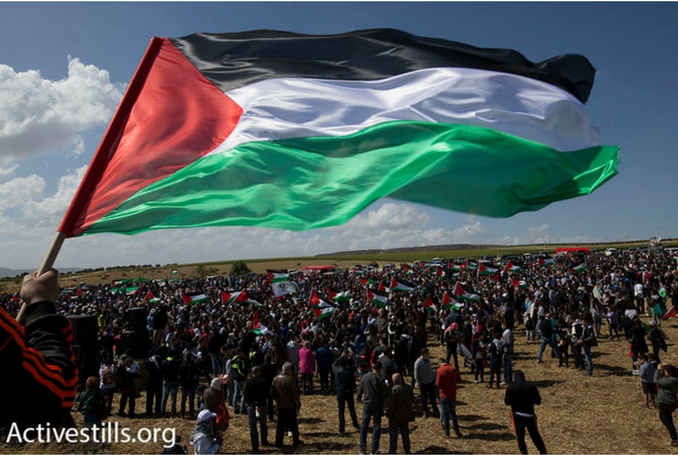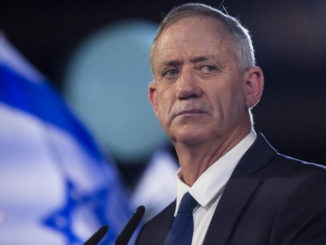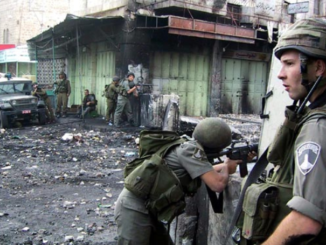
By Maaz Khan
Something you’ll often hear about the conflict in Palestine, usually from those unfamiliar with the conflict or those who want to obscure its realities, is that both sides want peace.
They usually start off by citing one of several surveys showing that both Israelis and Palestinians, when asked, want peace. Then they proceed with a deluge of “both sides” rhetoric:
“If only the Palestinians got rid of Hamas and the Israelis Likud, then there would be peace!”
“If only the extremists on both sides stopped, then the people would find peace themselves!”
“If only we had more coexistence events, then everyone would see they’re all the same!”
And so on.
These narratives are problematic, not because they’re necessarily wrong; in fact, they’re mostly correct in saying that Israelis and Palestinians are capable of living together in peace and harmony. The problem with these statements is they really don’t mean anything because everyone has a different definition of peace.
It’s a no brainer that when you ask almost anyone “Do you want peace?” their answer is going to be a resounding “Yes!” Peace is used as a justification for action by both the most hawkish and dovish. You’ll rarely get someone who says “I love war and conflict and killing!”
The goal of “peace” is almost always included in the pursuits that produce anything but, from the invasion of Iraq to the repression of protests in France and Sudan. When tyrants and oppressors talk about peace, they mean a return to the status quo or the establishment of a status quo that is better suited to their desires.
In other words, saying that you want peace means absolutely nothing unless you define that peace. And how does this apply to the conflict in Palestine? Like other times the rhetoric of peace is wielded for malevolent pursuits, it is meant to obfuscate the situation, and in this case, it obfuscates the situation even more by talking about both sides wanting peace rather than just one. For now, let’s focus on how the rhetoric of peace is meant to produce a false sense of consensus.
The problems with this “peace” rhetoric start to become obvious as soon as you try defining it. Let’s say you gather a variety of people with differing views on the conflict. You ask them if they support peace, and, of course, they say “Of course!” Seeing how they all agree on peace, you then move on to the actual issues with on the ground realities, starting with the question “What do you think should happen to the Palestinian refugees?” and suddenly we’re back to where we were: fundamental disagreement. Discussion groups can be useful in pulling people away from extremes, but they will never solve any issues, and instead help to maintain the status quo.
Because discussing the issues will show that both sides have different understandings of peace, most prefer instead to try to limit discussion of the issues. So what happens when someone tries to bring up criticism of one side? Suddenly, they get accused of “being against peace” and “part of the extremist side,” regardless of what their criticism is.
This “both sides support peace” becomes a tool to eliminate any meaningful discussion or criticism of the issue because they don’t want to confront the contradictory definitions of peace that exist. The ones who tend to use this tool are the ignorant, those who can’t respond to the criticism in any way other than deflecting by saying both sides have criticisms.
The above criticisms can be considered from both the pro-Israel and pro-Palestinian sides. However, the peace rhetoric mostly benefits Israel, simply because it supports the status quo, which is very much in Israel’s favor. When someone says that both sides have responsibilities to get peace, they erase the fact that the Palestinians are powerless.
When someone demands that both sides will have to make sacrifices for peace, they erase the fact that Palestinians are the ones with nothing. When someone condemns violence from both sides as equally horrific, they erase the fact that Palestinians are being dominated by one of the most advanced militaries in the world. When they say both sides have suffered equally, they erase the fact that Palestinians across the world suffer from the colonial project that has occurred in their homeland every second of every day.
When Israel says it wants peace, especially under the Netanyahu government, it means the right to peacefully settle and ethnically cleanse the West Bank and East Jerusalem. It means the right to force Gazans to accept whatever fate Israel thinks is fit. It means denying Palestinian refugees the right to return their homes. For Israel, “peace” means continuing the status quo or subjugating Palestinians even further.
Its peace offers have been designed to give Palestinians, at most, a series of bantustans with no real sovereignty. This is true whether the Israeli leader is Rabin or Netanyahu, and in fact, the former may have been more destructive by creating the “peace process,” the most prominent utilization of “peace” rhetoric.
When Palestinians have offered peace, they’ve asked for at most 21% of their original homeland and the right of return enshrined in international law, whether it’s corrupt Fatah or Islamist Hamas. Palestinians have been very willing to define their peace as a fraction of their homeland despite the historical trauma they have faced for nearly a century. This isn’t to say Palestinian actors haven’t performed condemnable actions, but rather their peace is something that gives both sides a path to harmony at the cost of some justice.
It is crucial that, if we want to achieve real peace, we reject this “peace” rhetoric that tries to distract from the real issues and utilizes the myth of two sides of equal power rather than the reality of occupier and occupied. While it may feel comforting to believe the two sides could just reach peace if the leaders got out of the way and the people came together, the reality is very different and much more complex. Peace, harmony, and justice are truly achievable, but only when that peace is rooted in harmony and justice.
– Khan is a student who is passionate about Palestinian rights and has helped organize events with Students for Justice in Palestine (SJP). He contributed this article to Palestine Chronicle.







